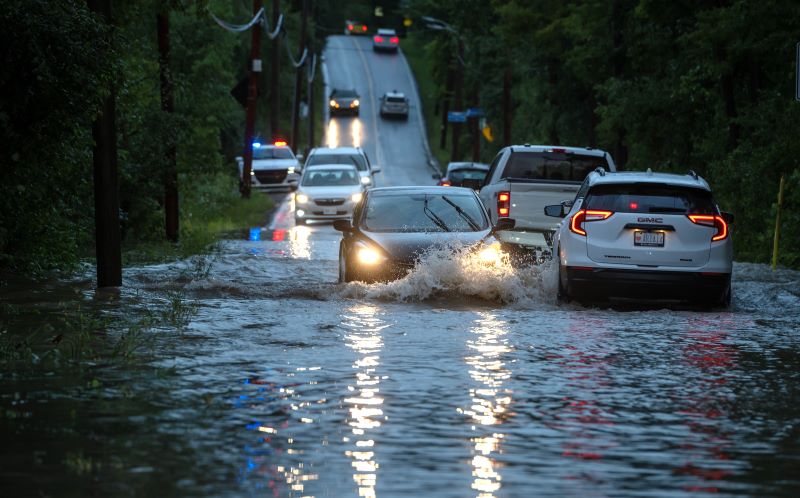Quebec faces Debby’s wrath

Property flooding, sewer backups and river overflows are all on the docket for insurers and adjusters responding to historic rainfall and flooding in southern Quebec.
How does the damage caused by post-tropical storm Debby in Quebec and eastern Ontario stack up against the estimated insured losses of a July rainstorm in Ontario, which could reach the billion-dollar threshold? Time will tell, but industry sources say the extent of Quebec’s damage may cover a wider range than July’s Ontario flooding.
Debby sweeps through Quebec
Torrential rainstorms on Friday drenched Montreal in 145 millimetres of rain, surpassing the previous daily rainfall record set nearly 30 years ago, according to Environment Canada.
Some communities along the St. Lawrence received between 100 to 211 millimetres of water.
The rain followed in the wake of Hurricane Debby, which developed into a post-tropical storm by the time it reached Quebec.
The storm submerged parts of Montreal with water, shut down the Dorval tunnel on Highway 13, and damaged buildings and vehicles.
The rainfall affected 35 municipalities across the province, including three that declared a local state of emergency, Quebec’s public security minister François Bonnardel said on social media platform X.
There were 1,539 isolated residences, 344 people evacuated and nearly 100 roads affected on Friday, Bonnardel wrote.
Even some communities north of the major cities reported impacts. The Lac Joly campground flooded, and the Dolbeau and Saint-Thomas-Didyme regions reported hail between two and four centimetres.
But storms don’t stop at borders. Ottawa and parts of Eastern Canada reported extensive damage to streets and roadways and cars.
And with that, adjusters are awaiting a deluge of claims.
“We are preparing for a substantial increase in the number of claims. The claims will include both residential and commercial losses,” said Gabrielle Cote, Sedgwick’s Quebec regional vice president.
The rainfall did a number on Hydro Quebec customers as well. And that means insurers may reasonably anticipate outage-related and food spoilage claims.
More than half a million customers across the province went without power on Friday.
“Many of the outages last night and tonight were caused by heavy water accumulations and strong winds,” the province’s utility company reported Saturday. “At the height of the event around midnight on Friday, there were approximately 550,000 customers affected.”
By Monday afternoon, power was returned to all but 3,600 customers, according to a service report by Hydro Quebec.
Debby’s damage
This is the second potentially catastrophic flood in the region within a month.
Nearly 66 millimetres of rain dropped atop greater Montreal when Hurricane Beryl passed through the province mid-July, Environment Canada reported.
“[With] the recent events, several regions of Quebec were impacted, not just Montreal, and we are seeing a mix of damages including water infiltration, sewer backups and river overflows,” a Bureau d’assurance du Canada spokesperson told Canadian Underwriter.
As for how this storm compares to Beryl’s flooding of Toronto a few weeks ago, which experts say could cost the industry more than $1 billion in damages, only time will tell.
Quebec’s flooding over the weekend, however, impacted a wider area, Cote told Canadian Underwriter in a statement.
Flooding in the greater Toronto area on July 16 submerged the city in nearly 100 mm of rain, flooding major highways and public transit routes, and damaging myriad properties and vehicles.
“The flood damages in Quebec and Eastern Ontario covers a substantially greater area than what we saw in the Toronto area last month and the damages in Quebec and Eastern Ontario are at a significantly larger scale,” Cote said.
Cars drive slowly through flooded streets in Sainte-Anne-de-Bellevue on the Island of Montreal after heavy rains hit the area on Friday, August 9, 2024. THE CANADIAN PRESS/Peter McCabe







